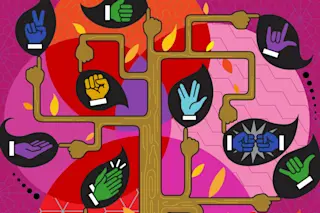If you found out a new fact about yourself could that reshape how you view yourself? An extreme case involves the Polish Neo-Nazis who found out that they are actually of Jewish origin. But it can be more subtle. A friend recently told me that her proud Irish American father found out that he carried a Native American Y chromosomal lineage. There is the peculiarity that
how we view ourselves is contingent not only the reality of who we are, but the background facts we assume about ourselves.
When it came to light last spring that most modern humans may carry a non-trivial load of Neandertal ancestry I predicted that that would re-humanize Neandertals in our minds, and also the representations we make of them. The recent story about a cryptic language in northeast India made me consider another possibility. Currently our population coverage in surveys of genetic variation, from ...













